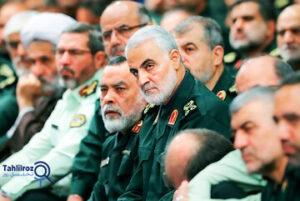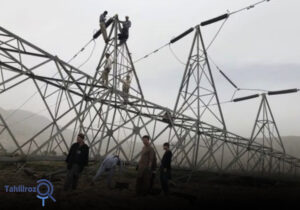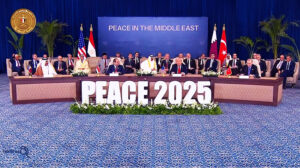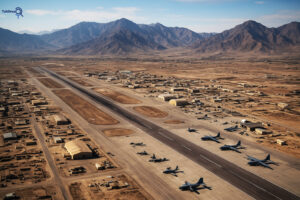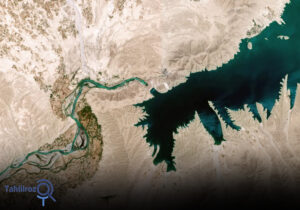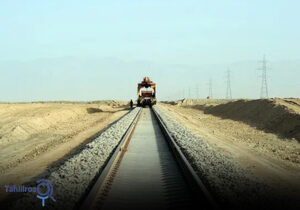The Operation Al-Aqsa Storm, which was launched by the Palestinian resistance movement Hamas with the support of Palestinian resistance groups on October 7, 2023, is considered one of the largest and most important military and political events in the recent history of the conflicts between the Zionist regime and Palestine. This operation, which began as a response to the continuous violations of the occupation in al-Aqsa Mosque and the oppression against Palestinians, had wide-ranging effects in military, economic, political and social dimensions.
While a year has passed since the surprise operation of Al-Aqsa Storm, the extent and severity of the crimes of the Zionist regime with the unrelenting support of the United States and the West has raised the question of whether it was necessary and worth it, considering the amount of costs and damages.
-
Was the Operation Al-Aqsa Storm worth it?
Al-Aqsa storm operation was carried out in response to years of violation of the rights of Palestinians by the Zionist regime, as well as the increase in aggression in Al-Aqsa Mosque. In the months leading up to the operation, widespread violations against Islamic sanctuaries in Jerusalem and repression of Palestinian men and women in the area led to increased public discontent among Palestinians and Islamic communities.
This operation was recognized as a turning point in the history of Palestinian resistance against Israeli occupation. While Israel had always tried to control the Palestinian resistance through repressive policies and economic sanctions, the Al-Aqsa storm operation showed that these policies were not only unsuccessful, but also increased the solidarity and strength of the resistance.
Still the most noticeable consequence of the Operation Al-Aqsa storm which leaves no doubt on its necessity to be done, is that it completely changes the way the world looked at Palestine and Israel. Now more and more politicians, analysts and ordinary people are emphasizing on Palestinians’ right to legitimate defense. Rallies and demonstration all around the world in support for Palestine is the greatest prove over it.
-
Achievements of the Operation Al-Aqsa storm
1- Military achievements
The Operation Al-Aqsa storm is considered the biggest and most complex military attack by Palestinians against the Zionist regime in modern history. This operation was able to deal heavy blows to the Israeli army by using advanced tactics and extreme surprise.
1-1 The failure of Israel’s security doctrine
For years, Israel had based its security doctrine on deterrence and early warning. However, the “Al-Aqsa Storm” operation showed that this doctrine is not effective against coordinated and surprise attacks. The Palestinian resistance forces were able to penetrate deep into the country without Israel’s warning systems reacting.
This was a major strategic and security setback for Israel, as Israel’s confidence in its ability to prevent attacks was questioned. One of the foundations of this doctrine was the ability to control occupied areas and prevent sudden incursions, which clearly showed its ineffectiveness during this operation.
At the beginning of the operation, more than 5,000 rockets were fired at the occupied territories, which targeted areas such as Tel Aviv and the settlements around the Gaza Strip. The Zionist defense systems, such as the Iron Dome, could not fully cope with these attacks, and this revealed serious weaknesses in Israel’s air defense.
The Palestinian resistance forces were able to capture several military bases and settlements around the Gaza Strip by penetrating the borders of the Zionist regime and passing through the security walls. This operation showed that Israel has serious problems in maintaining the security of its borders.
1-2 Arresting settlers and occupying Zionist soldiers
During the Operation Al-Aqsa storm, the resistance forces managed to capture more than 150 Israeli prisoners, some of whom were senior officers of the Israeli army. This number of captives is Israel’s biggest failure in this field and is considered one of the most important achievements of the resistance. This action not only weakened the morale of the Zionists, but tactically and strategically, it provided an important card for resistance in possible negotiations with the Zionist regime. The captivity of the Israeli forces also caused this regime to be under more pressure and seek political or military solutions to release the prisoners.

2- Economic impacts of the Operation Al-Aqsa storm
The Operation Al-Aqsa storm had a significant impact on the Zionist economy. One of the most important consequences of this operation was the cessation of economic activities in many areas of the occupied territories and the increase of military expenses and infrastructure reconstruction.
2-1 Economic losses
Al-Mayadeen news agency has stated in a report that by November 2023, that is, only one month after the start of Al-Aqsa storm operation, the economy of the Zionist regime had suffered losses of about 13 billion dollars, these losses include military expenses, destruction of infrastructure, and closure of businesses.
The report added that many small businesses were closed, especially in the southern areas of the occupied territories, and thousands of people were sent to military service.
2-2 Decrease in agricultural production
In an article in the Turkish newspaper Al-Istiqlal, it has been stated that in the agricultural sector, the Zionist regime lost about 150,000 tons of agricultural products, which led to a 14% increase in the price of vegetables and 8% in the price of fruits. Also, the lack of labor force due to the migration of Palestinians and the decrease in production increased the economic pressure on the domestic markets of Israel.
2-3 Reduction of air and sea transportation activities
According to the report of this newspaper, the activity of Ben Gurion Airport decreased by 55% due to the security crisis and the war. Many international airlines stopped their flights to Israel, which led to a sharp decrease in traffic and a negative impact on the tourism industry and business.
3- Social and political influences
The Operation Al-Aqsa storm had wide-ranging effects not only in the military and economic field, but also in social and political terms. This operation caused serious changes in the domestic and foreign policy of the Zionist regime and also increased solidarity between Palestinians and Islamic communities.
3-1 Migration and evacuation of settlements
The Times of Israel website stated in a report that due to widespread rocket attacks and increased insecurity, more than 224,000 residents of the border areas of the occupied territory were forced to leave their homes. Of these, about 115,000 people were evacuated from the settlements around Gaza and the northern borders. This issue put a lot of pressure on the Zionist government, because the resettlement of these settlers and their security required large budgets and urgent measures.
3-2 Public and student protests in all countries of the world
One of the most important achievements of the Al-Aqsa Storm operation over the past year has been the formation of a wide wave of public and student protests around the world. These protests, which took place in response to Israel’s attacks on Gaza and its occupation, witnessed large gatherings not only in Arab and Islamic countries, but also in Europe, America, and other parts of the world. These movements are a reflection of global anger towards Israel’s actions and solidarity with the Palestinian people.
In many countries, universities were recognized as the main centers of organizing these protests. The students demanded an end to the violence against the Palestinians and an end to the Israeli occupation by holding protest marches and gatherings. These protests were held widely even in universities in Western countries such as the United States, Britain, and France, which usually support Israel, and put pressure on the governments of these countries to reconsider their policies towards the Israeli-Palestinian conflict.
3-3 Strengthening the process of recognizing the state of Palestine
One of the important achievements of the Al-Aqsa storm operation in the international arena has been the strengthening of the process of recognition of the Palestinian state by several countries. This operation, which was able to draw global attention to the Palestinian issue, caused a revival of debates about the recognition of Palestinian rights and their efforts to achieve independence.
In fact, global protests that followed this operation had an impact on some governments and encouraged them to review their policies towards Palestine and Israel.
3-4 The failure of the project of normalizing relations with Israel
Another important achievement of the Al-Aqsa Storm operation was disrupting the process of normalizing Israel’s relations with Arab and Islamic countries. In recent years, some Arab countries, including the United Arab Emirates and Bahrain, have normalized their relations with Israel by signing agreements such as the “Ibrahim Agreement”. This process was considered a major diplomatic success for Israel and its supporters in the West.
However, the Operation Al-Aqsa storm and widespread public and regional reactions showed that the Palestinian issue is still an important priority for Arab and Islamic people and governments. The wave of protests and strong reactions to this operation in Arab countries showed that this normalization of relations was done only at the level of governments and people are still strongly against it.
-
Conclusion
The Operation Al-Aqsa storm was one of the most important events in the history of Israeli-Palestinian conflicts, which had wide-ranging effects in the military, economic, social and political fields. This operation showed that the Palestinian resistance still has the ability to deal with the occupation of the Zionist regime and that the deterrence power of this regime has been greatly weakened. On the other hand, the economic and social consequences of this operation are still felt in Israel and will probably have long-term effects on the political and social future of this regime.
Let’s finish the article with a statement by Stephen Walt, theoretician of international relations and the editor of the specialized magazine Foreign Policy: “Tactical victories cannot be a strategic success for Israel. Despite his pride, Bush failed in the war in Afghanistan and Iraq, and Netanyahu is also following his path.”

Mohsen Shahrafiee, Analyst


